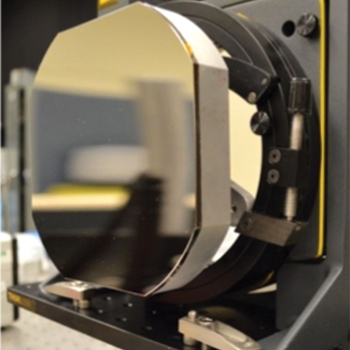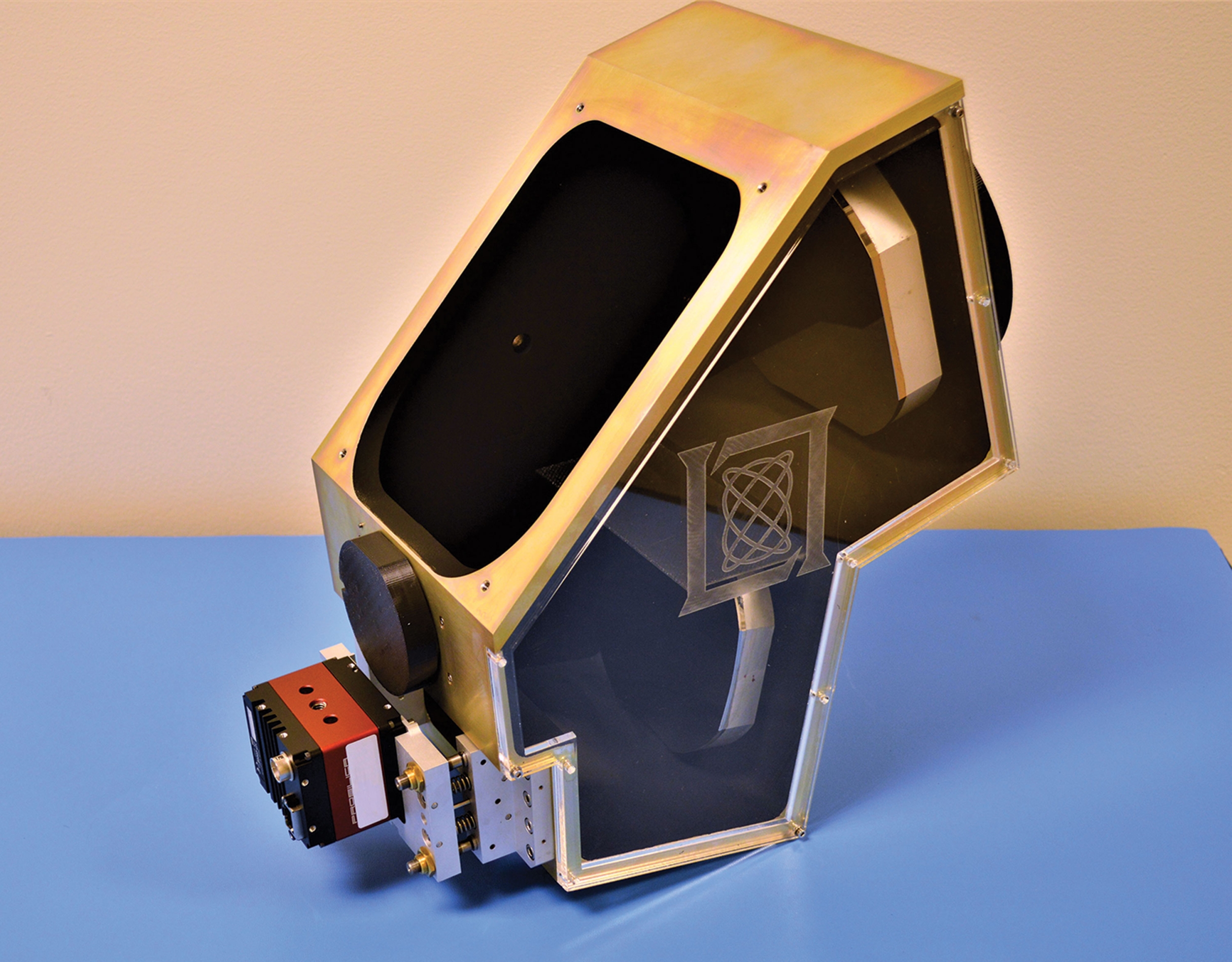Imaging Freeform Optical Systems

Lincoln Laboratory developed a program to raytrace and design nonuniform rational basis spline (NURBS) freeform surfaces in imaging optical systems. Our groundbreaking program addresses the limitations faced by traditional optical design programs in optimizing complex freeform surfaces demanded by imaging systems that employ high-performance, large-format detector arrays or are packaged into smaller volumes.

Our optical design program's unique algorithms optimize freeform lenses and mirrors in imaging systems to provide high speed and enhanced resolution in cameras and telescopes. These new high-speed cameras and telescopes match the performance advances in large-format detector arrays to produce images with less noise and higher resolution than previously possible. These high-resolution cameras can be designed with mirror surfaces to allow their use in the infrared and the visible bands.
Example Uses
- Three-dimensional scene reconstruction used in topographical mapping, architecture, geology, and surveillance can be generated from fewer images
- Optimization of the thousands of variables associated with NURBS freeform surfaces, the industry standard for mathematically describing the complex curvatures in car body shapes
- Cameras with a six-fold improvement in spatial resolution over the field of view; successfully demonstrated by a three-mirror camera with surfaces polished to match the exact freeform shapes designed by our program
Benefits
- Provides freeform optical system design
- Uses NURBS-based design for complex freeform shapes
- Optimizes thousands of freeform parameters
- Enables speed and accuracy of imaging system
Additional Resources
U.S. Patent 10,437,943
More Information
M.P. Chrisp, B. Primeau, and M.A. Echter, "Imaging Freeform Optical Systems Designed with NURBS Surfaces," Optical Engineering, vol. 55, no. 7, 1 August 2016.